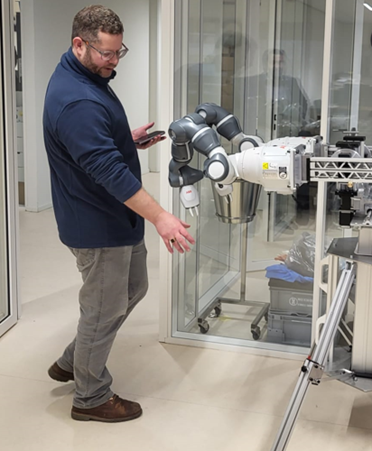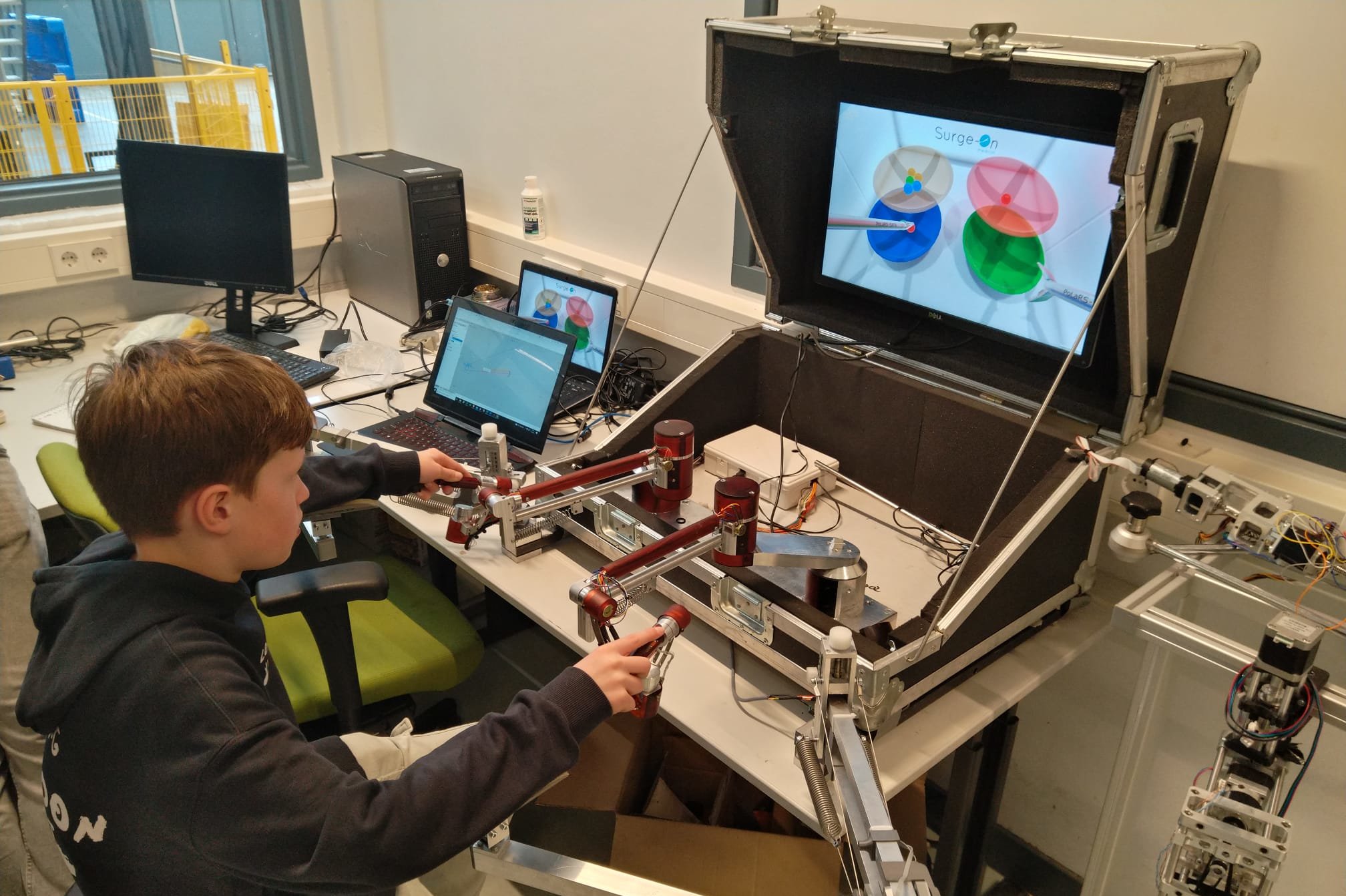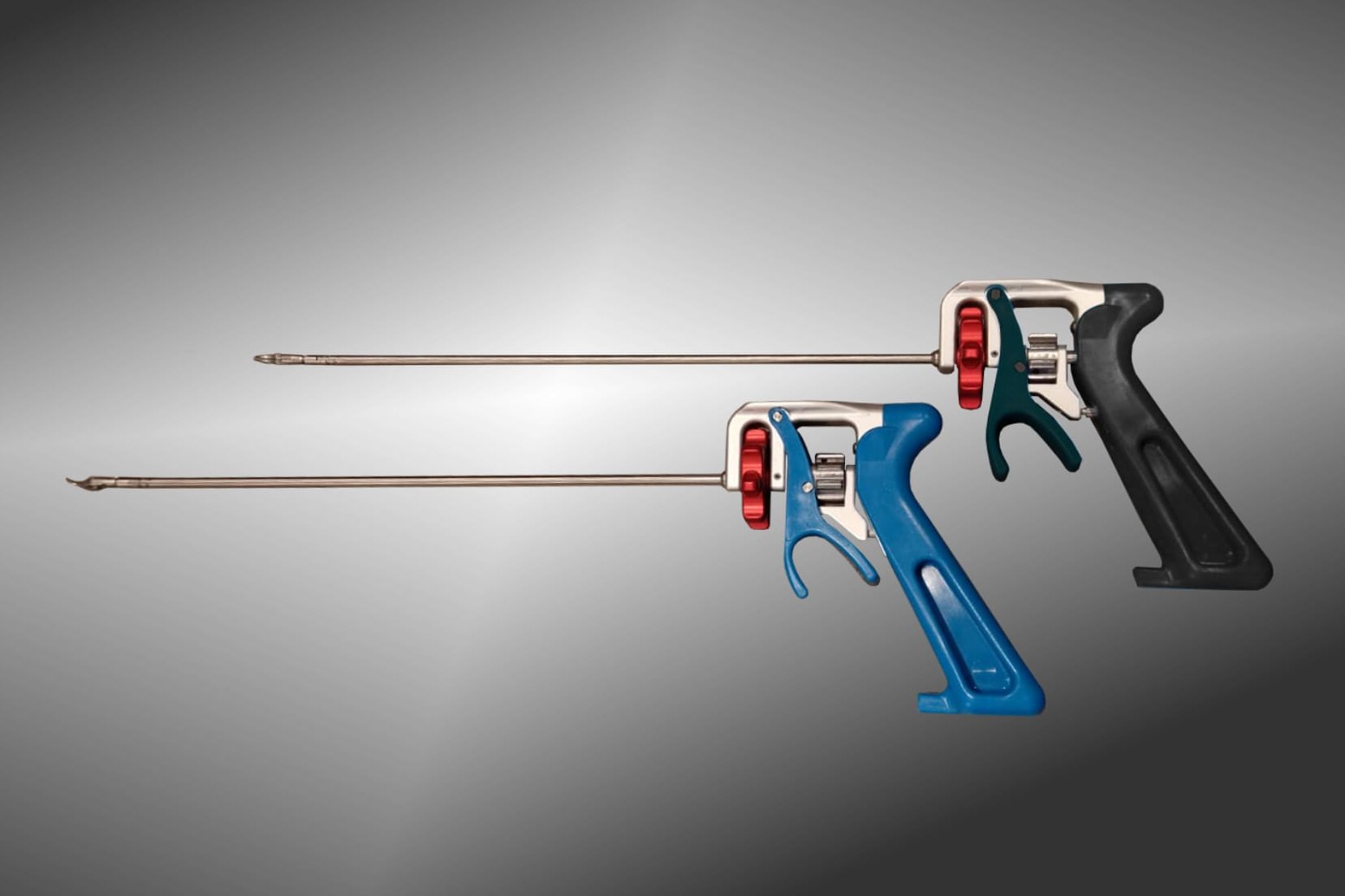KIC grant awarded to sustainable surgery robot for minimally invasive surgery
NWO has awarded six research projects in the KIC call ‘Key enabling technologies for minimally invasive interventions in healthcare’, including the research of Tim Horeman, Assistant Professor of Sustainable Surgery & Translational Technology at the Department of Biomechanical Engineering. The Knowledge and Innovation Covenant (KIC) research programme stands for pioneering innovative solutions with social and economic impact.
Surgery with minimal tissue damage
Laparoscopic surgery is a common procedure that millions of people around the world undergo every year. However, most hospitals cannot afford capital-intensive robotic surgery systems, which use expensive disposable instruments that are also harmful to the environment. To solve this problem, Tim Horeman’s research team has developed a new system called the Advanced Laparoscopy Robotic System (AdLap-RS), a new robotic platform for advanced laparoscopic procedures (keyhole abdominal surgery) that is modular and versatile in that it can be assembled in different ways, like a jigsaw puzzle.

T. Horeman
- +31 15 27 85097
- T.Horeman@tudelft.nl
-
34.F-1-360
As the instruments used by the platform are reusable and fully modular, parts can be easily swapped between robotic arms and simple grips, allowing the configuration to be tailored to the needs of the surgeon, team and environment. This approach makes the technology versatile, as users can now choose to configure the system as a less expensive set of hand surgery instruments with or without a locally actuated endoscope holder, or a fully controlled multi-arm robotic system. This allows the surgical team to easily adapt the setup to the complexity of the surgical setting during the procedure. Uniquely, not only can this platform perform force measurements on the instruments to prevent tissue damage and instrument breakage, but it can also monitor the internal condition of the components for maintenance purposes. The development of smarter robotic systems with reusable instruments therefore appears to be the key to enabling less well-equipped hospitals to access the benefits of robotic surgery.

Horeman: ‘Robotic surgical systems are rapidly gaining currency in the medical world because of the benefits they provide surgeons in terms of precision, comfort and dexterity, resulting in improved surgical outcomes. These benefits apply to hospitals around the world, but are not equally accessible everywhere. Complex systems require more maintenance, more training for use, a significant amount of space, a considerable financial investment, and complicated cleaning and sterilisation processes. As a result, integrating these robotic systems into smaller hospitals is often still a challenge due to their limited finances and infrastructure. It is therefore essential that easy-to-clean and affordable robotic technologies are made available in the environments that sometimes need it most.’
A sustainable vision for the future
Beyond the financial impact, the development of a new generation of instruments with a longer lifespan and fewer components could have a huge impact on the amount of waste associated with robotic surgery and be a good step towards a more circular healthcare economy. Approximately one in three laparoscopic procedures (which will rise to 7.5 million procedures a year by 2025) is performed using articulating instruments (Peters et al. 2018; Blencowe et al. 2018). For example, if a minimum of three SATA instruments are used per procedure (e.g. for incisions, manipulations and closures) and each can be reused 100 times instead of the usual 10, then at least 5 million instruments a year could potentially be reused rather than discarded.

